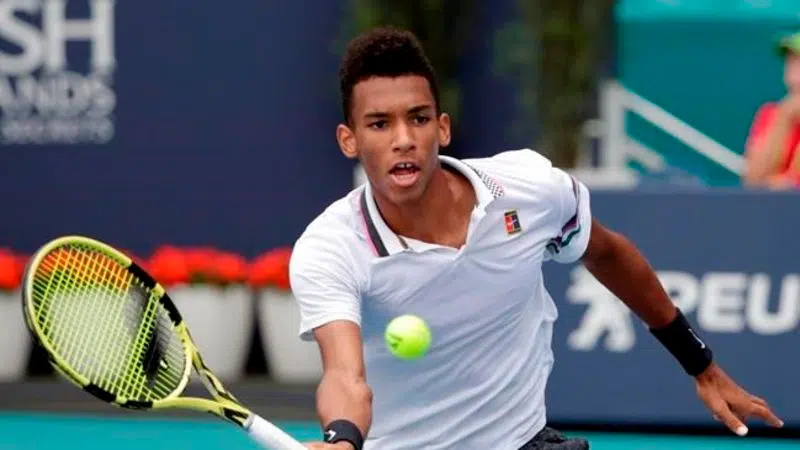
Teen tennis star Felix Auger-Aliassime has special energy, intensity: coaches
Minutes after speaking with reporters about a tough semifinal loss at the Miami Open last month, Felix Auger-Aliassime returned to the court to work on his game.
The decision didn’t surprise those who know the rising Canadian tennis star best.
“It was maybe a little bit of therapy for him. … I think it was a good reaction,” said longtime coach Guillaume Marx, noting Auger-Aliassime wasn’t happy with his serve in the two-tiebreak loss to world No. 10 John Isner of the U.S.


